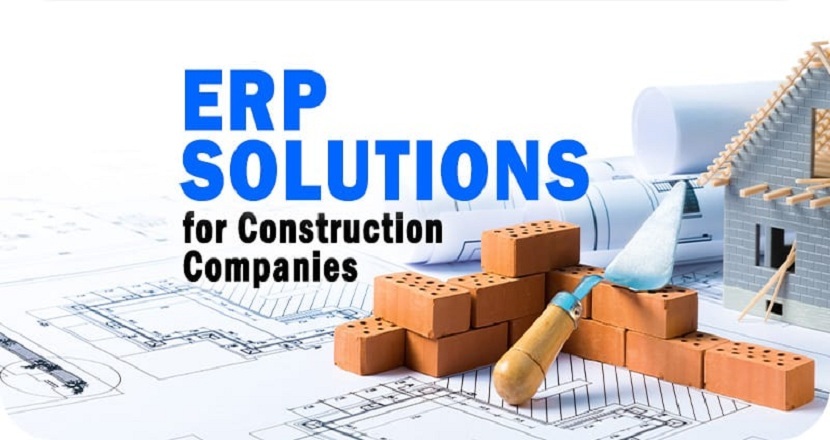Revolutionizing Construction Management with ERP Solutions entails a paradigm shift in how the industry operates, leveraging the transformative capabilities of cloud-based ERP solutions. These cutting-edge tools provide construction management teams with unparalleled flexibility and accessibility. By harnessing the power of cloud technology, construction professionals can access real-time project data seamlessly from any location, facilitating collaboration even among geographically dispersed teams.
The scalability of these ERP solutions is a key advantage, enabling companies to dynamically adjust resources according to the evolving demands of each project. This marks a significant departure from traditional construction management methods, ushering in an era of heightened efficiency, collaboration, and adaptability within the industry.
Introduction to Construction ERP Software
The construction industry, projected to experience 4% growth from 2021 to 2031, is embracing advanced technology, including Enterprise Resource Planning (ERP). With an estimated revenue of $11.13 billion in 2023, the sector is poised for significant transformation. As construction enterprises navigate this evolution, the integration of ERP software becomes crucial, offering a strategic advantage in streamlining processes, managing resources efficiently, and adapting to the demands of a dynamic market.
-
Navigating Growth with ERP
Construction ERP software emerges as a pivotal tool, streamlining operations, enhancing financial understanding, and contributing to increased profitability. Its adoption promises improved customer loyalty, satisfaction, and overall financial performance. By leveraging Cloud-based ERP solutions, construction companies position themselves to not only meet industry growth projections but to surpass them. The system’s capabilities extend beyond operational efficiency, playing a key role in fostering innovation, responsiveness, and sustained competitiveness.
Understanding Construction ERP Software
-
Defining ERP in Construction
Delving into the fundamentals of ERP, or Enterprise Resource Planning, proves to be a comprehensive solution for managing core processes like accounting, project management, and compliance. Construction ERP software development integrates data for accurate information retrieval, eliminating errors. Beyond its foundational functions, ERP in construction acts as a strategic enabler, aligning diverse processes into a cohesive framework. This integration enhances accuracy and empowers decision-makers with real-time insights critical for informed, data-driven choices.
-
Functions and Accessibility
Construction ERP systems, available on-premise and as cloud-based solutions, serve as centralized hubs for efficient data organization. Essential for modern construction business growth, these systems optimize operations, data analysis, and distribution within organisations. The accessibility of these systems on-premise and in the cloud ensures that construction teams can seamlessly collaborate regardless of their physical location. This flexibility contributes to improved project management, enhanced collaboration, and quicker decision-making, driving the industry towards a more agile and responsive future.
Challenges Without ERP Solutions
-
Confronting Industry Challenges
The construction sector faces multifaceted challenges such as inappropriate planning, managing multiple clients, inadequate communication, lack of realistic expectations, and inefficient decision-making. ERP solutions emerge as essential remedies to ensure efficient operations, offering a comprehensive approach to address and overcome these challenges. By implementing ERP, construction businesses position themselves to proactively tackle industry-specific hurdles and foster sustained growth.
-
Impact of Manual Processes
Manual processes contribute to delays, errors, and communication breakdowns within the construction industry. ERP systems address these challenges by providing efficient planning, streamlined communication, and realistic goal-setting for construction projects. The transformative impact of ERP on manual processes extends beyond mere automation; it instils a culture of precision, accountability, and data-driven decision-making, mitigating risks associated with manual errors.
Benefits and Use Cases of ERP in Construction
-
Streamlining Operations
Construction ERP software ensures automated operations, allowing companies to manage various tasks efficiently. This leads to better time management and strategic focus on critical projects. As construction teams streamline their operations through ERP, they not only enhance efficiency but also unlock valuable resources that can be redirected towards innovation and quality improvements.
-
Project Management Optimization
ERP systems play a crucial role in successful project management, maximizing efficiency, optimizing projects, and accurately allocating resources. Effective project management is vital for avoiding long-term losses. The optimization facilitated by ERP extends to resource allocation, risk management, and timeline adherence, ensuring that construction projects meet or exceed expectations.
-
Internal Communication
Cloud-based ERP solutions facilitate effective communication within construction companies, reducing the likelihood of missed deadlines and project failure. Tools like chat forums and connected calendars enhance team collaboration. By fostering a collaborative environment, ERP systems contribute to a culture of transparency and shared responsibility, ultimately improving project outcomes and client satisfaction.
-
Mobile Responsiveness
The mobility of ERP systems proves advantageous for construction companies, providing real-time updates on mobile devices. This accessibility accelerates operations, prevents delays, and promotes streamlined workflows. Whether on construction sites or off-site meetings, the ability to access critical information via mobile devices enhances decision-making agility and overall project responsiveness.
-
Enhancing Marketing Strategies
Construction ERP implementation empowers businesses with data-driven insights, aiding in the creation of effective marketing strategies. By analyzing financial and marketing KPIs, companies can refine their approaches for improved results. ERP-driven insights enable construction firms to align marketing efforts with business objectives, ensuring a targeted and impactful approach that resonates with their target audience.
-
Estimated Construction Costs and Revenue
ERP systems enable accurate cost estimation, helping contractors compete for projects. Predictive analytics and AI-powered features reduce discrepancies between estimated and actual costs, enhancing profitability. The construction industry’s competitive nature necessitates precise cost estimates, and ERP systems provide a data-driven approach, offering a strategic advantage in bidding processes and ensuring projects are financially viable from inception to completion.
Essential Elements in Construction ERP Software Development
-
Integration Estimation
Accurate project expectations hinge on effective data management. ERP solutions, providing detailed analysis and forecasts, ensure successful project completion within set timelines and budgets. This integration not only facilitates precision in project planning but also empowers construction businesses to proactively address challenges, enhancing adaptability and resilience in dynamic project environments.
-
Advanced Accounting
Comprehensive financial management in construction requires Cloud-based ERP solutions that go beyond conventional accounting. Subcontractor management, plant tracking, and cost reporting are crucial components for success. The advanced accounting features in ERP systems enable construction firms to gain a holistic view of their financial landscape, fostering informed decision-making and financial stability.
-
More Payroll Operations
ERP systems should include components for accurate payroll management, covering real-time processing, labour cost analysis, and on-demand project cost/revenue consolidations. By incorporating comprehensive payroll operations, ERP solutions not only ensure financial accuracy but also contribute to employee satisfaction and compliance, critical factors in the success of construction projects.
-
Plant, Material and Equipment
Construction ERP software must efficiently manage multiple projects, sites, and resources. Monitoring building components, materials, and equipment is vital for maximizing profitability in a competitive market. The ability of ERP systems to provide real-time insights into resource utilization, material availability, and equipment status empowers construction companies to optimize their operations and stay ahead of industry competition.
-
Detailed Financial Report
Accurate and timely reporting is crucial in the construction industry. ERP systems tailored for project-focused environments provide valuable insights into performance, operational efficiency, and profitability. The detailed financial reports generated by ERP systems serve as comprehensive performance indicators, aiding construction firms in identifying strengths, addressing weaknesses, and making informed strategic decisions.
-
Safety & Health Management
Prioritizing employee safety, ERP systems offer modules for recording, investigating, and analyzing incidents. This ensures compliance with safety standards and maximizes efficiency by providing metrics and scorecards. The safety and health management features in ERP contribute not only to regulatory compliance. But also to fostering a culture of safety, contributing to enhanced employee well-being and project success.
Conclusion
In conclusion, implementing Cloud-based ERP in construction is imperative for navigating industry complexities. From streamlining operations to enhancing safety, ERP systems equip construction businesses for sustained growth, efficiency and success. As the sector embraces digital transformation, ERP stands as a cornerstone for optimizing and future-proofing construction enterprises.





Leave a Reply